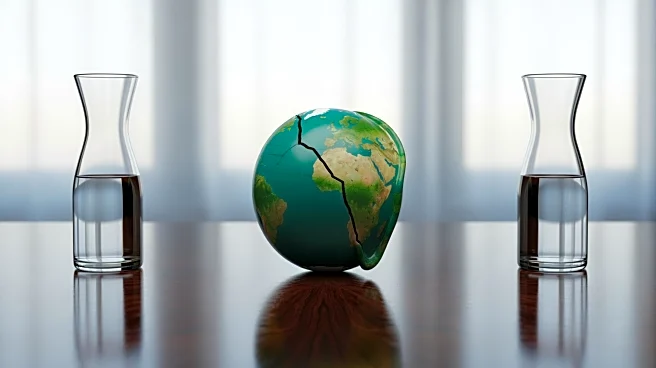What's Happening?
At the COP30 climate summit in Belém, Brazil, Chinese delegates have accused the United States and the European Union of undermining global decarbonization efforts. The criticism centers on trade restrictions imposed by the US and EU on green technology
exports, including electric vehicles and batteries. These restrictions are seen as detrimental to climate goals, particularly as China's carbon emissions have remained stable or declined since March 2024. This decline is attributed to the expansion of renewable energy and increased adoption of electric vehicles, which have offset a surge in industrial output.
Why It's Important?
The accusations from China highlight ongoing tensions between major global powers over climate policy and trade. The restrictions on green technology exports could hinder the global transition to renewable energy, affecting industries reliant on these technologies. The situation underscores the complex interplay between economic interests and environmental goals, with potential implications for international relations and global climate policy. Stakeholders in the renewable energy sector may face challenges in accessing necessary technologies, impacting efforts to reduce carbon emissions worldwide.
What's Next?
The COP30 summit continues with high-ranking government ministers leading negotiations. The outcome of these discussions could influence future trade policies and international cooperation on climate change. Major stakeholders, including political leaders and industry representatives, are likely to react to the accusations, potentially leading to diplomatic discussions or policy adjustments. The focus will be on finding a balance between trade interests and environmental commitments, with the potential for new agreements or initiatives to emerge from the summit.















